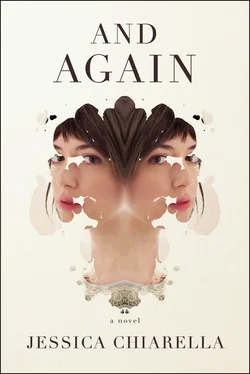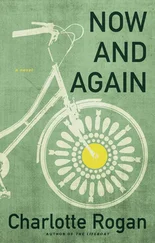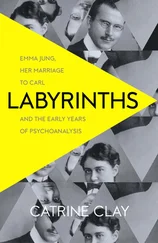“You look like you’ve gotten about twelve years of sleep,” Sam says. “How do you feel?”
“I can breathe.” I exhale the words, drawing them out. I feel like I’m describing a lover, something illicit.
“I know,” he says. “Your pulse ox is above 95. That’s the first time in ages.”
I smile, glancing over at the readout on the monitor beside my bed. It would have been a mystery to us a year ago, that machine, but now we are experts in the weights and measures of my illness. Sam has a particular knack for memorizing numbers and the dosages of my medications and the names of all of the nurses. He’s the one who takes the notes, asks the doctors questions. He says it’s the journalist in him, but I know better. He’s particularly skilled at this, at being the caretaker, because he had a lot of practice with his father.
“It’s amazing how afraid I’ve been of that little number,” Sam says. “I keep waiting for it to drop. It seemed like I’d come in every morning and it’d be lower than the day before. That fucking number used to ruin my whole day.”
I nod. I wonder if I’m allowed to kiss him. I decide it’s better not to try, not right away.

Sam leaves to check his messages when the doctors descend. Dr. Mitchell gives a quick knock on the door as he enters, less a request for permission and more of an announcement of his presence. There’s no stopping anyone in a hospital; you’re on their turf, a supplicant. The doctor is an older man with bright silver hair and an oblong birthmark on his right cheek. Dr. Shah follows him, and the contrast of her youthful exuberance could not be starker against his measured, practiced calm. She practically skips into the room, teetering in her high heels, looking more like an extra in a Bollywood movie than the scientific savant that she is. The third man is less familiar to me. He’s tall, middle-aged, and has a certain bureaucratic exactness to him. I wonder if he’s from the government, one of the doctors who will be reporting on all of the SUBlife patients during the next year before the program goes up for FDA approval. The three of them close in around me.
“How are we feeling today Hannah?” Dr. Mitchell asks, taking a penlight out of his pocket and shining it in my eyes. I smile because he always speaks about me in the plural and because, of all my doctors, I like him best.
“The pain is gone,” I reply, a bit afraid to say it out loud, lest I tempt it back with my words. A nurse elbows her way between Dr. Shah and the other doctor, unceremoniously grabbing my arm for a blood test. She plunges a needle into the distended vein in the crook of my arm. It’s almost a welcome sight; my old veins had been so shot in the last few weeks that the nurses in the ICU had to draw blood from the tops of my feet. Dr. Mitchell checks the glands in my neck as the nurse removes the full vial of blood and tapes a lump of cotton to my injured arm, then disappears without a word. The brusqueness and efficiency of the hospital staff has become commonplace for me, and I long ago surrendered any resistance to their needles and catheters and tubes and relentless prodding. It’s been a long time since I felt that my body was in any way my own. But this is the first time that I wonder if this body is mine at all, if I even have the option to refuse any of the medical demands they will make upon it.
I answer Dr. Shah’s questions and read the flash cards she puts before me as Dr. Mitchell listens to my heart and lungs, tests my reflexes. I recite the words they asked me to remember before the transfer. Glass. Curtain. Snapshot. When she holds up a card with a blue box in the middle and asks me what color it is, the smart-ass in me wonders what would happen if I tell her that it’s yellow. I feel like a seal with a ball balanced on my nose, clapping my flippers for their amusement. But I give the correct answer instead. My guess is FDA guy doesn’t have much of a sense of humor.
“What did you do for your seventh birthday party?” Dr. Shah asks. The question surprises me a bit, because I haven’t thought about any of my childhood birthdays in years. She must have gotten her information from my sister.
“Horseback riding,” I reply, recalling the coarse feeling of the horse’s mane beneath my hands. The memory brings with it a flood of relief. It must all still be there, I think. All of my memories must have transferred over, even the ones it wouldn’t occur to me to remember on my own.
Dr. Mitchell presses on my stomach. FDA guy looks bored. I wonder how many times he’s been through this before. I wonder how many of us there are in the Northwestern pilot program. Or maybe he has to fly around, go to all five of the hospitals that were approved for SUBlife trials. How many times can someone watch a human clone wake up for the first time before it becomes boring?
Dr. Mitchell pulls out a pen and scribbles in my chart. “Everything is looking great, Hannah,” he says. “You should expect some differences at first. Your muscles are still underdeveloped, so we’re not going to get you up and walking just yet. And we’re going to work our way up to solid food to make sure your digestive system is in good order. But none of that is out of the ordinary for this stage post-transfer.”
“Has anything gone wrong with any of the others?” I ask. Dr. Mitchell glances at Dr. Shah. She’s the one who answers.
“We only have data for our SUBlife patients here at Northwestern. But so far, everyone has responded very well to the transfer.”
“How many have there been?”
“You’re the fourth. You’ll meet the others next week when you start attending your support group meetings.”
“And you’re sure—” I swallow hard against the lingering dryness in my throat, trying to get the question out. “You’re sure the cancer isn’t going to come back?”
There’s a slight pause in the room. FDA guy looks at me like I’m an idiot, probably wondering why his taxpayer dollars are funding a study to save someone like me, someone who can’t even grasp the most basic of concepts. But if I don’t ask the question, here, out loud, I know the lack of an answer will plague me forever.
Dr. Mitchell is kinder than his counterpart. He takes my hand, leaning forward a bit. Maybe he knows how badly I need to hear it again now, even though I’ve heard it a hundred times before. “We were able to isolate the defective genes, Hannah,” he says, smiling a bit, a kindly old man calming his grandchild after a nightmare. “We removed them completely when we began developing your SUB. No, the cancer is not going to come back.” He squeezes my hand.
Now I start to cry, which clears the room pretty effectively. Sam steps back inside as the doctors leave, and he brings me a handful of tissues, but doesn’t sit back down. I wonder if his instinct is also to flee at the sight of my tears. Maybe he’s finally reached his limit, too.
“Penny left three messages. I told her I’d call as soon as you woke up, do you mind?” He holds up his phone.
“No, I’m sure they’re going crazy,” I say, drying my eyes as he steps back out into the hallway.
I wad up the damp tissues and toss them in the direction of the wastebasket. They fall short, of course. I take a deep breath, revel in it, and decide to take stock. I haven’t been alone yet, in this new body, and it feels a bit like waiting to become acquainted with the body of a stranger, a new lover. It’s something that must be done in private.
The skin of my arms is very pale, dusted with a fine down of dark hair, unbleached by the sun into its usual golden invisibility. Trails of cerulean veins stand prominent beneath the skin of my wrists. I can’t tell if the patterns are still the same as they were before. I don’t remember, and it scares me how little I memorized of the body I’d lived in for twenty-seven years. All of my freckles are gone, giving my skin a strange, placid sort of appearance. As if it’s not quite real, as if I’ve pulled on a pair of perfect, silken gloves that reach all the way up to my shoulders. There are dark, damp thatches of hair in my armpits, and I begin to feel itchy as soon as I discover them.
Читать дальше













